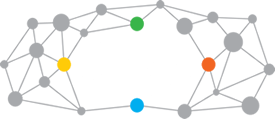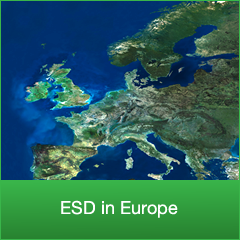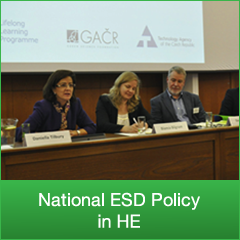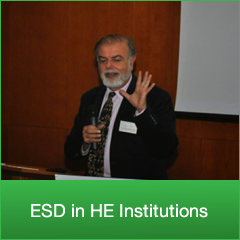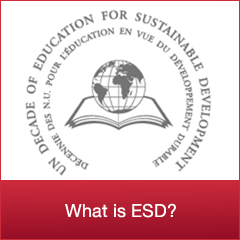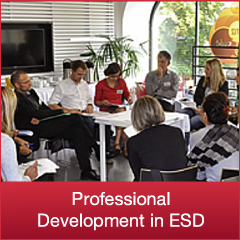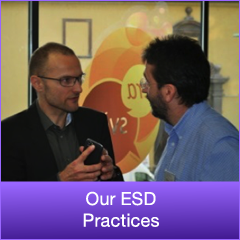Professional Development in ESD
Professional Development, also known as Continuing Professional Development, recognises that change is a constant feature of life. It addresses the need for continual learning and conscious reflection to respond effectively to change in professional practice. This can be supported through informal or formal activities, such as training, mentoring, workshops, action learning sets, workplace projects and accreditation schemes.
For academic staff, professional development has not traditionally been prioritised for teaching, due to the dominant focus on research excellence. However, moves to professionalise HE teaching are gaining pace and in some countries this is becoming an increasingly formal and recognised activity for university educators.
To date most professional development offerings have been aimed only at improving teaching practice itself. Developing academic leadership and the ability to influence and change the way the curriculum is shaped has received little attention so far, in HE professional development.
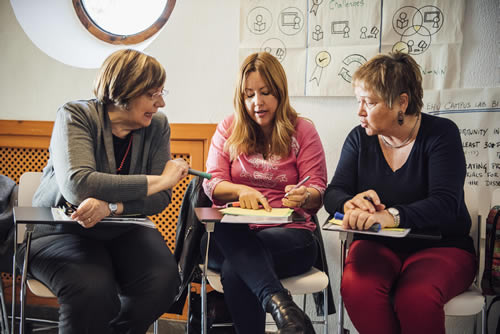
Professional Development Journeys in ESD
ESD invites educators to reflect on, rethink and reframe their approaches and priorities in teaching. Therefore it brings a range of professional challenges to the university educator, such as:
- Understanding how new pedagogies could be applied in their subject
- Linking ESD pedagogies with the specialist content they teach
- Reframing what quality learning outcomes might look like with ESD
- Engaging with students in different ways in the learning relationship
- Digesting new sustainability thinking and practice in their industry/profession
- Learning more about how to achieve education change in their workplace
Support is needed to take on these ESD challenges, to absorb new ideas and find space to reshape practices and plans, as well as to influence the ideas of others.
The UE4SD State of the Art report found that many European countries lack formal ESD professional development opportunities. Existing activities are often linked to sustainable development research and the teaching of specialist topics in sustainability, rather than critically reflective and innovative pedagogies that will extend the capabilities of students, or building skills for change and leadership.
ESD offers an exciting agenda for learning innovation, but the experiences of educators active in ESD show that professional development needs are not being met. The examples presented by the UE4SD Leading Practice Publication and in our Practices section aim to tackle this by addressing the ‘how’ as well as the ‘what’ of teaching, plus the need for Professional Competences in education change.
The final year of the UE4SD project also saw the development of a UE4SD Academy process for university teams. This enabled members of the network to engage actively in professional development to advance ESD at their universities, learning more about ESD and gaining experience in the process of change for ESD at the institutional level.
